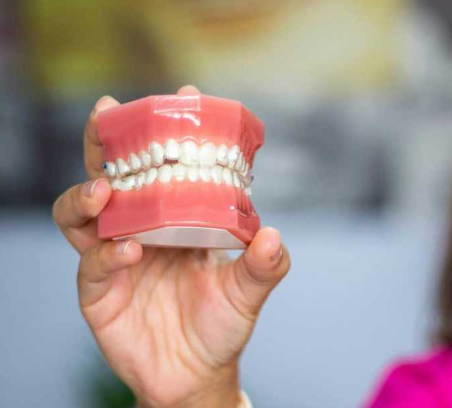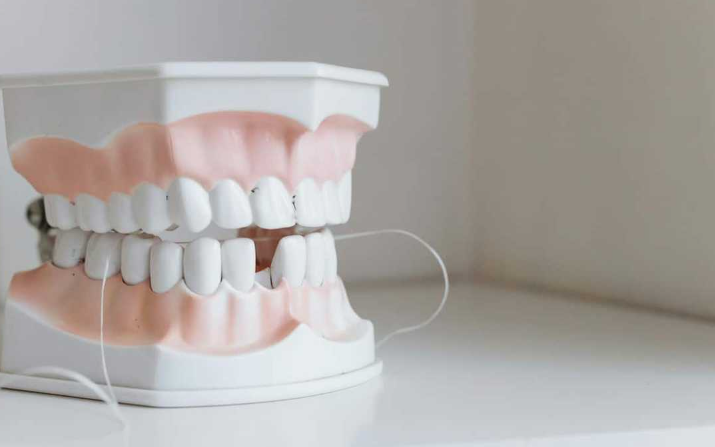Quick Summary
False teeth, or dentures, in South Africa can vary in cost based on their type and the factors influencing their price. Complete dentures generally cost between R9,000 and R12,000, while removable partial dentures average around R800 per tooth. Costs are influenced by the type of denture, materials used, treatment complexity, and the dentist’s reputation. Additional expenses may include preparatory procedures and long-term maintenance. Understanding these factors helps in making an informed decision about your dental needs and budgeting effectively.
Introduction
Welcome to our detailed guide on the cost of false teeth in South Africa. False teeth, also known as dentures, play a crucial role for individuals who have lost their natural teeth due to various reasons such as decay, injury, or age. Understanding the financial aspects associated with getting false teeth is essential for making informed decisions about your dental health and budgeting.
In this post, we’ll explore everything you need to know about false teeth in South Africa—from the different types available to the costs involved. Whether you’re considering dentures for the first time or looking to replace an old set, this guide will provide you with valuable insights into the costs, factors affecting prices, and additional considerations.
So, let’s dive into the world of false teeth and find out how much they might cost you in South Africa!
Understanding False Teeth and Their Types
False teeth, or dentures, are designed to replace missing teeth and restore both function and aesthetics. They come in various forms, each suited to different needs and preferences. Understanding these types can help you choose the best option for your situation.
What Are False Teeth?
False teeth are prosthetic devices used to replace missing natural teeth. They help individuals regain their ability to chew, speak, and smile confidently. False teeth can be made from different materials and come in various styles, each offering different benefits and drawbacks.
Common Reasons for Needing False Teeth:
- Tooth loss due to decay or disease
- Injury or trauma causing tooth loss
- Natural aging process leading to teeth wear and loss
Types of False Teeth Available in South Africa
There are several types of false teeth available, each designed to meet specific needs:
Complete Dentures
Description: Complete dentures are used to replace an entire set of missing teeth. They are typically made of acrylic resin and can be either conventional or immediate.
Benefits:
- Restore full function and appearance
- Improve self-esteem and confidence
Drawbacks:
- May take time to get used to
- Potential for slipping if not properly fitted
Removable Partial Dentures
Description: Removable partial dentures are designed to replace only a few missing teeth while leaving the remaining natural teeth intact. They are typically held in place with metal clasps.
Benefits:
- Less invasive compared to complete dentures
- Easier to clean and maintain
Drawbacks:
- Metal clasps may be visible
- Can cause plaque build-up if not cleaned regularly
Fixed Dental Bridges
Description: Fixed dental bridges are non-removable prosthetics that replace one or more missing teeth. They are anchored to adjacent natural teeth or implants.
Benefits:
- Provide a stable and permanent solution
- Look and function like natural teeth
Drawbacks:
- Requires dental work on adjacent teeth
- Higher cost due to the complexity of the procedure
Temporary Dentures
Description: Temporary dentures are used as a short-term solution while waiting for permanent dentures or while healing from dental procedures.
Benefits:
- Offer a temporary fix during the transition period
- Help maintain appearance and function
Drawbacks:
- Not as durable as permanent dentures
- Need to be replaced with permanent options
Overdenture Implants
Description: Overdenture implants are supported by dental implants and are a more stable option compared to traditional dentures.
Benefits:
- Increased stability and comfort
- Better function and longevity
Drawbacks:
- Higher initial cost
- Requires surgical placement of implants

Cost of False Teeth in South Africa
The cost of false teeth in South Africa varies depending on the type of denture, materials used, and the complexity of the treatment. Here’s a breakdown of the typical costs associated with each type of denture:
Complete Dentures Cost
Price Range: R9,000 to R12,000
Details: Complete dentures replace an entire set of missing teeth. The cost includes the initial fitting and adjustments. Complete dentures offer several benefits, including improved appearance and functionality, but they can also have drawbacks, such as the risk of developing a lisp or slipping if not properly fitted.
Removable Partial Dentures Cost
Price Range: R800 per tooth
Details: Removable partial dentures are used to replace only a few missing teeth. They are generally less expensive than complete dentures and are a cost-effective option for individuals with only a few missing teeth. However, they require regular cleaning to prevent plaque build-up and may have visible metal clasps.
Fixed Dental Bridges Cost
Price Range: R5,000 to R15,000 per bridge
Details: Fixed dental bridges are a more permanent solution and are typically more expensive due to the complexity of the procedure. The cost includes the preparation of adjacent teeth or implants, the bridge itself, and any necessary follow-up appointments.
Temporary Dentures Cost
Price Range: R3,000 to R6,000
Details: Temporary dentures are designed for short-term use and are less expensive than permanent options. They provide a temporary solution while waiting for permanent dentures or while healing. Temporary dentures are not as durable as permanent ones and are meant to be replaced eventually.
Overdenture Implants Cost
Price Range: R20,000 to R40,000
Details: Overdenture implants are supported by dental implants and provide increased stability. The higher cost reflects the complexity of the procedure, including the surgical placement of implants and the custom fabrication of the overdenture. This option offers better stability and comfort compared to traditional dentures but comes with a higher initial investment.
In the next section, we will delve into the factors affecting the cost of false teeth, providing you with a deeper understanding of what influences these prices and how to manage your budget effectively.

Factors Affecting the Cost of False Teeth
When considering the cost of false teeth, it’s important to understand the various factors that can influence the final price. Here, we’ll explore these factors to help you better estimate and manage your expenses.
1. Type of Denture
Complete Dentures vs. Partial Dentures: The type of denture you choose significantly impacts the cost. Complete dentures are generally more expensive than partial dentures due to the need to replace an entire set of teeth. Similarly, fixed dental bridges and overdenture implants often come with higher price tags due to their complexity and permanence.
2. Material Used
Acrylic vs. Porcelain vs. Metal: The materials used in dentures can affect their cost. Acrylic dentures are typically less expensive, while porcelain and metal options are more costly but offer greater durability and a more natural appearance. High-quality materials can increase the overall price of dentures.
3. Customization and Fit
Custom Fitting: Customization and the fit of dentures play a crucial role in determining their cost. Well-fitted dentures that require precise adjustments and fittings are generally more expensive. Dentures that are custom-made to match the exact shape of your mouth and teeth will also come with a higher price tag.
4. Dental Professional’s Expertise
Experience and Location: The experience and reputation of the dental professional can affect the cost. Dentists with more experience or those working in areas with a higher cost of living may charge more for their services. Choosing a highly skilled dentist may result in a better fit and a more comfortable experience, though it may come at a higher cost.
5. Insurance Coverage
Dental Insurance: Whether or not you have dental insurance can significantly impact the cost you pay out-of-pocket. Some insurance plans cover a portion of the cost for dentures, which can help reduce your overall expense. It’s essential to check with your insurance provider to understand your coverage options.
6. Additional Services
Follow-Up Appointments: Costs can also include follow-up appointments for adjustments and fittings. These appointments ensure that your dentures fit properly and function well, but they can add to the overall cost of your dentures.
7. Laboratory Fees
Laboratory Costs: The fees charged by dental laboratories for creating custom dentures can vary. These fees are typically included in the overall cost of the dentures but can vary based on the complexity and quality of the work required.
Additional Costs to Consider
In addition to the base cost of false teeth, there are several additional expenses you may need to consider. These costs can add up, so it’s important to be aware of them when budgeting for dentures.
1. Initial Consultation and X-Rays
Consultation Fees: The initial consultation with your dentist, including any X-rays or diagnostic tests, can incur additional costs. This initial visit is crucial for determining your dental needs and planning your treatment.
2. Adjustment and Repair Costs
Ongoing Maintenance: After receiving your dentures, you may need occasional adjustments or repairs to ensure a proper fit. These costs are often not included in the initial price and should be factored into your budget.
3. Cleaning and Maintenance Products
Cleaning Supplies: Dentures require regular cleaning and maintenance to ensure their longevity. Special cleaning solutions and tools designed for dentures can add to your overall costs.
4. Replacement Costs
Longevity and Replacement: Dentures may need to be replaced over time due to wear and tear. The cost of replacement should be considered as part of your long-term dental care budget.
Conclusion
The cost of false teeth in South Africa varies widely based on several factors, including the type of denture, materials used, and the expertise of the dental professional. Understanding these factors and planning for additional costs can help you make an informed decision and manage your budget effectively.
Whether you opt for complete dentures, partial dentures, or more permanent solutions like dental bridges or overdenture implants, it’s essential to choose an option that best suits your needs and financial situation. Be sure to discuss all costs with your dentist and check with your insurance provider to maximize your benefits.
Frequently Asked Questions
In this section, we address some of the most common questions people have about false teeth. If you’re considering dentures or are new to them, these answers will help clarify any doubts you may have.
1. How long do dentures last?
Lifespan of Dentures: On average, complete dentures can last between five to seven years before needing replacement or significant adjustments. However, the lifespan of your dentures can vary based on factors such as the quality of materials used, how well they are maintained, and changes in your oral health. Regular dental check-ups are essential to assess the condition of your dentures and determine if repairs or replacements are needed.
2. What is the best type of dentures?
Choosing the Right Dentures: The “best” type of denture depends on your specific needs and preferences. Here are the main types:
- Complete Dentures: Ideal for replacing all of the teeth in the upper or lower jaw. They offer a full set replacement and are suitable if you have lost all your natural teeth.
- Removable Partial Dentures: Used to replace only a few missing teeth while retaining some of your natural teeth. They are cost-effective and easy to remove for cleaning.
- Fixed Dental Bridges: These are cemented into place and can be supported by implants or natural teeth. They offer greater stability but require surgery for installation.
- Overdenture Implants: Supported by dental implants, these provide a more secure fit and can be a good option if you have healthy jawbone.
Consult with your dentist to determine which type is best for your situation based on your dental health, lifestyle, and budget.
3. Can dentures be used for eating?
Eating with Dentures: Yes, dentures are designed to help you eat comfortably. Initially, you may need to adjust to your new dentures, which might involve learning how to bite and chew effectively. Start with softer foods and cut them into small pieces to ease into eating with dentures. Dental adhesives can also help secure your dentures while eating.
4. How often should dentures be replaced?
Replacement Frequency: Dentures typically need to be replaced every five to seven years, but this can vary based on individual factors such as wear and tear, changes in jawbone structure, or weight loss. Regular dental visits are important to monitor the condition of your dentures and to make any necessary adjustments or replacements.
5. Can dentures be repaired if damaged?
Repairing Dentures: Yes, dentures can often be repaired if they are damaged. Minor repairs can usually be handled by your dentist, while more significant damage might require sending the dentures to a dental lab. Avoid attempting to fix them yourself, as improper repairs can lead to further damage or discomfort.
6. Are there any alternatives to dentures?
Alternatives to Dentures: Yes, there are several alternatives to traditional dentures, including:
- Dental Implants: Surgically inserted into the jawbone, these provide a stable foundation for crowns or bridges.
- Cantilever Bridges: Supported by a single adjacent tooth, these are an option if only one adjacent tooth is available.
- Fixed Bridges: Consist of crowns placed on two or more adjacent teeth with a pontic (replacement tooth) in between.
Discuss these alternatives with your dentist to determine which option best suits your needs and preferences.
7. How to care for dentures?
Dentures Care Tips:
- Daily Cleaning: Remove and rinse your dentures after eating. Brush them daily with a soft-bristled brush and non-abrasive toothpaste.
- Soaking: Soak your dentures in a water-based cleaning solution overnight to remove stains and bacteria.
- Regular Check-Ups: Schedule regular dental visits to ensure your dentures fit well and to address any adjustments or repairs needed.
8. Can dentures be covered by medical aid?
Insurance Coverage: Coverage for dentures varies by medical aid plan. Some plans may cover part of the cost for dentures, while others may not. Check with your medical aid provider to understand your coverage options and any out-of-pocket costs you might incur.
9. Can dentures improve speech?
Speech Improvement: Dentures can help improve speech by filling gaps caused by missing teeth. However, it may take some time to adjust to speaking with new dentures. Practice speaking and be patient as you adapt. Over time, you should notice an improvement in your pronunciation and clarity.
10. Can dentures be worn while sleeping?
Wearing Dentures Overnight: It is generally recommended to remove your dentures before sleeping. Wearing them overnight can put unnecessary pressure on your gums and jawbone, which may lead to discomfort or irritation. Removing dentures also allows your oral tissues to rest and reduces the risk of bacterial growth.
Author’s Note
Thank you for reading this comprehensive guide on false teeth. I hope this article has provided you with valuable insights and answers to your questions about dentures, including their types, costs, and factors affecting their price in South Africa. As someone who has worked extensively with dental health topics, I aim to offer practical, well-researched, and easy-to-understand information to help you make informed decisions.
If you have personal experiences or additional questions about false teeth, feel free to share them in the comments. Your feedback is crucial in helping us improve and provide more relevant content. Remember, while this guide serves as a general overview, consulting with your dentist for personalized advice and treatment options is always the best approach.
Stay informed and take care of your dental health!

Oliver is a full-time writer with a passion for creating compelling content on diverse topics, including finance, business, product reviews, and more. With a keen eye for detail and a commitment to thorough research, she brings clarity and depth to complex subjects, making them accessible and engaging for readers. Oliver’s dedication to her craft ensures that every article is informative, well-researched, and thought-provoking. Outside of writing, she enjoys exploring new ideas, reading extensively, and continually expanding her knowledge.
Editorial Process
At Trusted Sources, our editorial process is crafted to ensure that every piece of content we produce—whether it’s an informational article or a review—meets the highest standards of accuracy, reliability, and engagement. Our commitment to delivering valuable, research-driven, and reader-centric content is reflected in our systematic and meticulous editorial approach.
Affiliate Disclosure
we are committed to transparency and honesty in all aspects of our operations, including our affiliate partnerships. We participate in various affiliate programs, which means we may earn commissions on qualifying purchases made through links on our Website.


